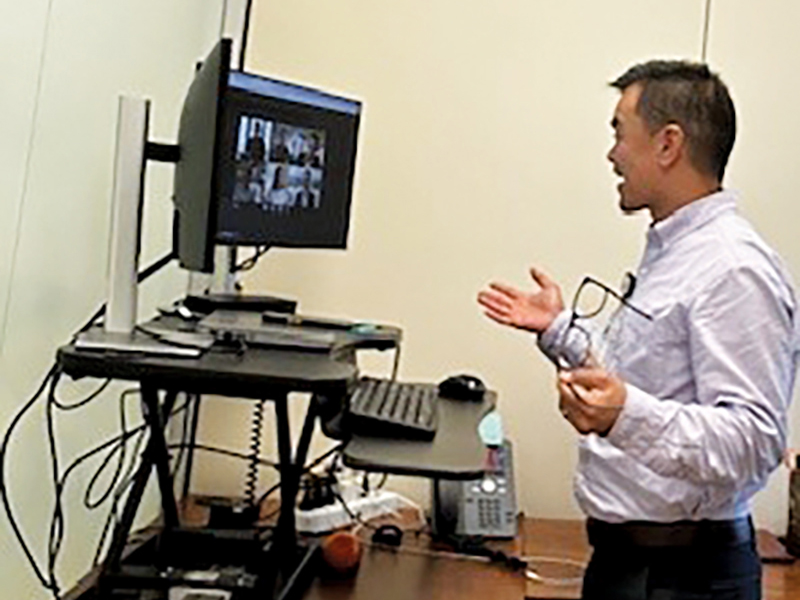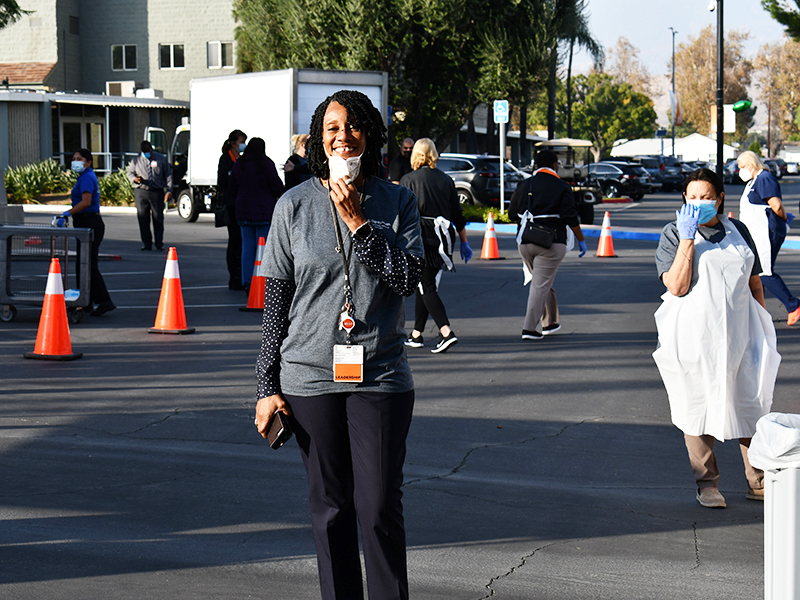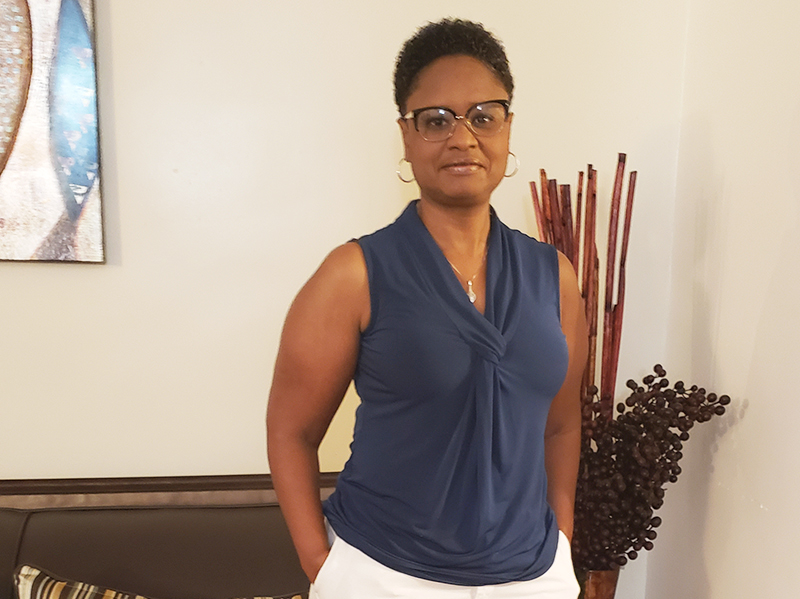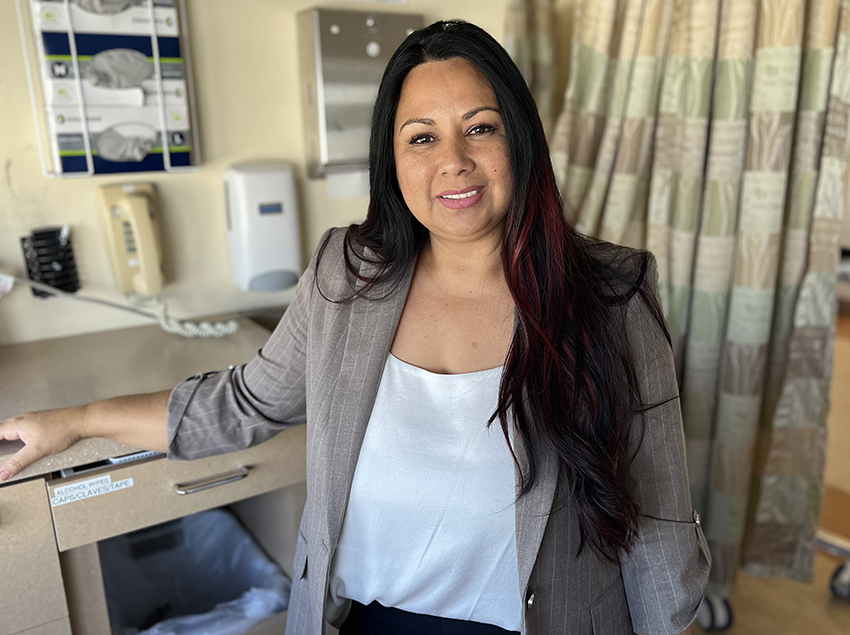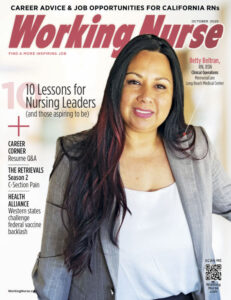CNO Roundtable 2025
Q7: Leadership Skills
What leadership skill would you like to see ALL nurses develop?
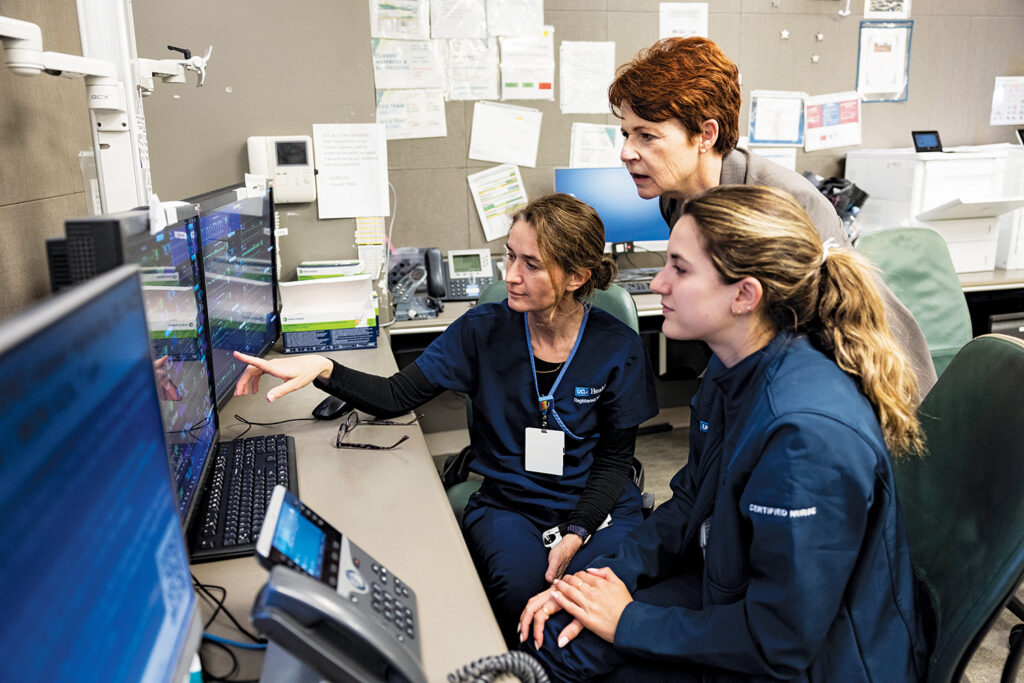
Annabelle Duschane Braun, Orange Coast Medical Center
Effective communication is foundational to any nursing role. Clear and concise messaging that’s tailored to the audience makes people feel better and improves engagement.
Sharon Brown, Arrowhead Regional Medical Center
Empathy is at the heart of nursing practice. Every nurse can benefit from cultivating this skill, which makes us better caregivers and stronger, more compassionate leaders.
Brandi Cassingham, Saddleback Medical Center
Situational awareness — taking a step back to see how patients flow through the system. The more we can understand the patient’s complete experience, the easier it is to work as a team across departments.
Danielle Gabele, Ventura County Medical Center and Santa Paula Hospital
Assertive communication. Nurses tend to be conflict-avoiders — learning how to assert yourself professionally is a skill any nurse can benefit from.
Karen Grimley, UCLA Health (photo, top)
Delegation. Nurses have been taught to do much on their own with primary nursing. Understanding how to delegate tasks enhances patient care and helps nurses manage their workload.
Derrek Hidalgo, California Rehabilitation Institute (above)
The ability to listen. An important aspect of this is considering all sides to the story and being open to the possibility that your impression of what you’re hearing isn’t always accurate.
Ceonne Houston-Raasikh, Keck Hospital of USC
Effectively communicating concerns, even if they’re uncomfortable. I’ve encountered countless situations where a nurse knew the right thing to do, but wasn’t comfortable speaking up.
Katie Hughes, Casa Colina Hospital
Adapting one’s communication style to the situation, the content, and the listener. Communication adaptability helps build rapport while ensuring concise delivery of information.
Awa Jones, USC Norris Cancer Hospital
The ability to lead with care and empathy. Every nurse is a leader, the “CEO” of their patients’ care. When nurses lead with empathy, they create an environment of trust, respect, and understanding.
Valerie Kaura, Redlands Community Hospital
Effective communication fosters a positive work environment where team members feel valued and understood. Nurses who excel in communication can lead by example, inspire their peers, and contribute to a culture of openness and trust.
Grace Kwasman, Adventist Health Glendale
Strong communication skills and critical thinking. The ability to think critically allows nurses to assess complex situations, analyze available data, and make evidence-based decisions.
David Marshall, Cedars-Sinai
Effective communication, including active listening, empathy, and conflict resolution. This is critical to articulating patient needs and navigating complex situations.
Ed Matzen, LADHS Correctional Health Services
Communication. From our first days in nursing school, it is our ability to connect with others that helps patients to achieve better outcomes and nurses to attain their career goals.
Jinhee Nguyen, Huntington Health
Relationship-building and how to give and receive feedback. Building relationships is an art, but it helps us understand expectations, build trust, and be our best. Feedback is equally important.
Roz Nolan, Dignity Health Community Hospital of San Bernardino (above)
Emotional intelligence. Understanding one’s own emotions and those of others is critical. I also recommend Six Sigma training to enhance problem-solving and process-improvement skills.
Greg Rogers, Kaiser Permanente Woodland Hills/West Ventura County
Empathy, which allows nurses to more deeply understand and connect with patients and colleagues, enhancing patient care and building stronger teams.
Dinarte Viveiros, MemorialCare Miller Children’s and Women’s Hospital
Listening, which can get lost in all the responsibilities nurses face, but is critical at all levels. If you’re listening to what people are saying, you can appropriately determine what they need.
Vicki White, Henry Mayo
That leadership is more about working with people than telling them what to do. The highest compliment you can give someone is expecting them to do their best, while making it clear that you’re there to support them if something stands in their way.
Kimmalo Wright, Olive View-UCLA Medical Center (above)
Resiliency. Our jobs are arduous, and facing difficulties head-on without despairing is essential. Walking away is easier, but standing tall and doing what’s right for our patients sets nurses apart. ■
Return to CNO Roundtable 2025 Main Page
In this Article: Leadership and Management


